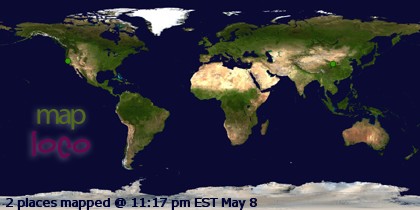Two Dutch researchers, Diederik Stapel and Siegwart Lindenberg of the University of Tilburg, ran a series of very interesting and revealing experiments reported in Science's April 8th edition focused on how a chaotic environment influences a person's social bias. "Coping with Chaos: How Disordered Contexts Promote Stereotyping and Discrimination". I found this study fascinating. They approached people in a Dutch railway station where the cleaners were on strike and it was filthy by the 4th day of the strike. They asked Caucasian respondents to fill out a survey about social bias about Muslims, homosexuals, and the Dutch, and they had the respondents sit in a row of 6 seats. The survey taker could sit on any of 6 seats in the row, except the first seat, which was occupied by either a Black Dutch/African male, or a Caucasian Dutch male - both of the seated males had been determined previously to be "equally intelligent, friendly, attractive, and approachable".
Stapel and Lindenberg then repeated the experiment, after the train station cleaners were not on strike and the central station was clean & pristine. What they found out, over 70 test subjects, was remarkable. In the dirty station, white respondents sat MUCH farther away from the black male - it must be his fault this place is so messy! When the station was clean, no seat choosing bias was demonstrated. In the survey results, the messy station solicited stronger discrimination than the clean station amoung respondents.
Then, to test the hypothesis that it was maybe just the dirt, and not the chaos that biased respondents, the researchers interviewed travelers in a affluent neighborhood, where they manipulated the environment, making ti look neat and orderly, or chaotic and disheveled (a knocked over bike, car parked up on the side walk, tiles removed from the side walk, etc). When the survey was done, they gave the survey taker 5 Euros, and asked if they would donate to "Money for Minorities". In the chaotic environment, people donated significantly less (or none at all), than in the neat, orderly environment.
They ran other experiments as well (link here, and previous work here)... but I found these 2 very revealing. More and more I am beginning to see the Social Sciences as actual science, and not "faux science" when variables are fastidiously controlled.
Abstract:
Being the victim of discrimination can have serious negative health- and quality-of-life–related consequences. Yet, could being discriminated against depend on such seemingly trivial matters as garbage on the streets? In this study, we show, in two field experiments, that disordered contexts (such as litter or a broken-up sidewalk and an abandoned bicycle) indeed promote stereotyping and discrimination in real-world situations and, in three lab experiments, that it is a heightened need for structure that mediates these effects (number of subjects: between 40 and 70 per experiment). These findings considerably advance our knowledge of the impact of the physical environment on stereotyping and discrimination and have clear policy implications: Diagnose environmental disorder early and intervene immediately.
In Taiwan, the China Post covered this as well (link here).
10 years ago


Fear & discrimination must be a constant threat inside my chaotic house!
ReplyDeleteYou run a benevolent totalitarian dictatorship (I assume) whose 'population' is of a homogeneous genetic make-up (or somewhat uniformly heterogeneous combination of you and JJ) so the opportunities for projecting discrimination upon "outsiders" maybe only comes up when you have visitors?
ReplyDeleteTrue, and we usually try to tidy up a bit before visitors. Plus it may be a different effect. It would be hard to even subconsciously blame some other group for the state of my own house.
ReplyDelete